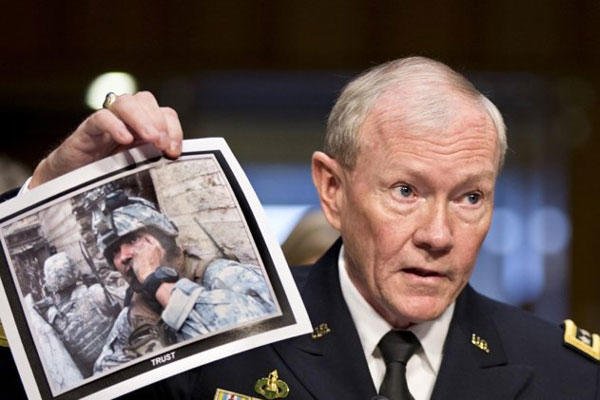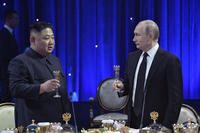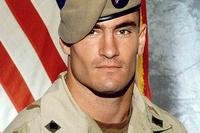One of the Senate's top Republicans threatened to block the reconfirmation of the military's top officer over how the U.S. should intervene in the civil war in Syria.
Sen. John McCain, R-Ariz., didn't waste any time criticizing Army Gen. Martin Dempsey, chairman of the Joint Chiefs of Staff, and Navy Adm. James Winnefeld, vice chairman, during their reconfirmation hearing today before the Senate Armed Services Committee.
"I must tell both the witnesses at the onset, I'm very concerned about the role you have played over the last two years," McCain said.
The senator afterward reportedly threatened to hold Dempsey's reconfirmation until the general gave his personal opinion on what the U.S. should do in Syria.
McCain, who this week helped broker a deal to avert a constitutional showdown in the Senate over presidential appointees, repeatedly asked Dempsey if the U.S. risks more harm than good by not establishing a no-fly zone in Syria and better arming opposition forces -- measures the senator supports.
More than 100,000 people have died in the two-year-old uprising against the regime of Syrian President Bashar al-Assad, according to a June estimate from the U.K.-based Syrian Observatory for Human Rights, which tracks the death toll through a network of activists in the country.
"I am in favor of building a moderate opposition," Dempsey said. "The question of whether to support it with direct, kinetic strikes is a decision for our elected officials -- not for the senior military leader of the nation."
McCain bristled at the response and then accused Dempsey of flip-flopping on whether to arm the opposition, saying the general backed the idea in February, changed his mind in April, and has since decided to support the measure again.
"How do we account for those pirouettes?" McCain asked.
"I wouldn't accept the term pirouettes, sir," Dempsey said. "We have adapted our approach based on what we know of the opposition and if you recall, at the beginning of the year, there was a period where it was pretty evident that the extremist groups were prevailing inside the opposition."
Dempsey's concerns were highlighted last week, when a fighter linked to the terrorist group al-Qaeda reportedly assassinated a high-ranking Syrian rebel commander.
When pressed again by McCain, Dempsey – in a not-so-subtle reference to Iraq – asked the senator whether he would agree "that situations could be made worse by the introduction of military force?"
McCain said the general disagreed with him in a similar debate in 2006 over whether to send some 20,000 more U.S. troops to Iraq to quell violence in Baghdad an al-Anbar province. President George W. Bush ultimately ordered the deployment, which was known as "the surge" and credited it with helping to turn the tide of the war.
"I think history shows that those of us who supported the surge were right and people like you who didn't think we need a surge were wrong," McCain said.
McCain asked Dempsey whether regional destabilization is a "good outcome" of the Syria conflict.
"Senator, somehow you've got me portrayed as the one who's holding back from our use of military force inside of Syria,” Dempsey said.
"We've given [President Obama] options," Dempsey said. "The members of this committee have been briefed on them in a classified setting. We've articulated the risk. The decision on whether to use force is the decision of our elected officials."
McCain reminded Dempsey that the general agreed at the beginning of the hearing to provide the committee with his personal opinion, if asked. "I'm asking for your opinion," McCain said.
"About the use of kinetic strikes?" Dempsey asked. "That issue is under deliberation inside of our agencies of government and it would be inappropriate for me to try to influence the decision with me rendering an opinion in public about what kind of force we should use."
McCain took the parting shot.
"If it is your position that you do not provide your personal views to the committee when asked, only under certain circumstances, then you have just contradicted what I have known this committee to operate under for the last 30 years," he said.
Despite the political fireworks, both Dempsey and Winnefeld are expected to be confirmed by the panel to another two-year term.





























